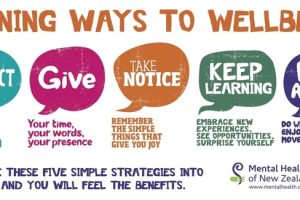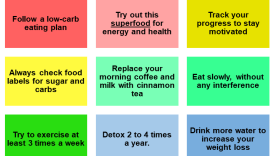The Ultimate Guide to Boosting Your Well-being

Understanding the Importance of Well-being
In today’s fast-paced world, the concept of well-being has taken center stage. It encompasses physical, mental, emotional, social, and environmental health, all of which are crucial to living a satisfying and productive life. When individuals prioritize their well-being, they tend to experience enhanced energy levels, improved resilience, and overall satisfaction. Take, for example, Sarah, a busy professional who found herself constantly drained and overwhelmed. Once she began to prioritize her well-being through simple adjustments—like regular exercise and mindful breathing practices—she noticed a remarkable transformation. Not only did her energy improve, but she also felt more engaged in her personal and professional life.
- The Ultimate Guide to Boosting Your Well-being
- Understanding the Importance of Well-being
- Factors Affecting Your Well-being
- Physical Well-being
- Importance of Physical Activity
- Healthy Eating Habits
- Mental Well-being
- Managing Stress and Anxiety
- Practicing Mindfulness
- Emotional Well-being
- Building Healthy Relationships
- Coping with Emotions
- Social Well-being
- Connecting with Others
- Fostering a Supportive Community
- Environmental Well-being
- Creating a Relaxing Space
- Incorporating Nature in Your Life
Factors Affecting Your Well-being
Several key factors influence one’s overall well-being:
- Physical Activity: Inactivity can lead to physical ailments and stress; engaging in regular exercise enriches both physical and mental health.
- Nutrition: What you consume plays a significant role in how you feel. A diet rich in fruits, vegetables, and whole grains fuels the body and mind.
- Social Connections: Building and maintaining healthy relationships can support emotional well-being and provide critical support systems during challenging times.
- Stress Management: High-stress levels can sap your joy and motivation. Effective coping strategies are essential to overcoming these challenges.
- Environmental Factors: Your surroundings can impact well-being significantly. A cluttered or chaotic space might cause unnecessary stress, while a calming environment can promote relaxation.
By recognizing and addressing these factors, individuals can take significant steps toward enhancing their overall well-being. As Sarah’s story illustrates, small changes can lead to substantial benefits in all areas of life.
Physical Well-being
Importance of Physical Activity
Physical activity is a cornerstone of well-being that often gets overshadowed by our busy schedules. Engaging in regular exercise not only enhances physical health but also elevates mood and reduces stress. It’s a simple yet powerful way to improve the quality of one’s life. Consider Mark, a father of two who struggled to find time for himself. By carving out just 30 minutes each day for a brisk walk or a short workout, he noticed incredible changes—not only in his energy levels but in his outlook on life. Here are some benefits of regular physical activity:
- Boosts Mood: Exercise releases endorphins, often referred to as the “feel-good” hormones, which can help combat feelings of anxiety and depression.
- Improves Sleep: A consistent exercise routine can lead to better sleep patterns, helping you wake up refreshed.
- Enhances Fitness: Increased strength, flexibility, and endurance are just a few physical benefits that come from regular movement.
Healthy Eating Habits
Alongside physical activity, healthy eating habits significantly contribute to physical well-being. What people consume can make a substantial difference in their overall health and how they feel every day. For instance, Emily, a college student, noticed that after switching to a diet rich in whole foods—fruits, vegetables, lean proteins, and whole grains—her focus improved and her energy skyrocketed. To foster healthy eating habits, consider these tips:
- Balance Your Plate: Aim for a variety of food groups to ensure you’re getting a well-rounded diet.
- Stay Hydrated: Drinking enough water can improve digestion and energy levels.
- Mindful Eating: Pay attention to your hunger cues and enjoy your meals without distractions to avoid overeating.
By embracing regular physical activity and nurturing healthy eating habits, individuals can pave the way for a healthier, more vibrant life.
Mental Well-being
Managing Stress and Anxiety
Mental well-being plays a significant role in how individuals experience life. Stress and anxiety are common challenges that many face, but understanding how to manage these feelings can lead to a more balanced and fulfilling life. Take Jake, for instance, a software developer who often felt overwhelmed by deadlines and responsibilities. After recognizing the toll stress was taking on his mental health, he began implementing simple strategies to alleviate anxiety. Here are some effective stress management techniques:
- Time Management: Prioritizing tasks and setting realistic deadlines can help combat feelings of being overwhelmed.
- Physical Activity: Engaging in regular exercise boosts mood and acts as a natural stress reliever.
- Establish Boundaries: Learning to say no and setting limits can protect personal time and reduce stress.
Adding these habits into one’s routine can help create a calmer mindset and foster resilience.
Practicing Mindfulness
Mindfulness is a powerful tool for enhancing mental well-being. It involves being present in the moment and focused on one’s thoughts and feelings without judgment. This practice can significantly reduce stress and anxiety and promote a sense of peace. For example, Lisa, a busy mother of three, struggled with racing thoughts throughout the day. By incorporating mindfulness techniques, such as meditation and deep breathing, she found that she could create a sense of calm even when life felt chaotic. To start practicing mindfulness, consider these approaches:
- Daily Meditation: Even five minutes can help clear your mind and improve concentration.
- Deep Breathing: Take a few moments to breathe deeply whenever feelings of anxiety arise. This simple act can ground you in the present.
- Journaling: Writing down thoughts and feelings can provide clarity and aid in processing emotions.
Incorporating mindfulness into everyday life can lead to substantial improvements in mental well-being, helping individuals navigate stresses more effectively. By managing stress and embracing mindfulness, a family can foster a healthier mental landscape for future challenges.
Emotional Well-being
Building Healthy Relationships
Emotional well-being is deeply intertwined with the quality of relationships individuals cultivate in their lives. Healthy relationships provide support, foster a sense of belonging, and enhance overall joy. They are essential for both emotional resilience and personal growth. Consider Mia, who, after moving to a new city, initially felt isolated. By seeking out community groups and reconnecting with old friends, she found her emotional state transformed. Actively engaging in relationships can create a robust support network. Here are key elements of building healthy relationships:
- Open Communication: Share thoughts and feelings honestly to foster deeper connections.
- Active Listening: Show interest in others by being present and attentive during conversations.
- Mutual Respect: Acknowledge each other’s boundaries and individuality to create a nurturing environment.
These practices can help fortify emotional ties, paving the way for trusted relationships that contribute to emotional stability.
Coping with Emotions
While building strong relationships is vital, understanding and coping with emotions is equally crucial for emotional well-being. Life comes with its share of ups and downs, and learning how to manage these feelings can lead to greater emotional resilience. Take Rachel, a college student who often felt overwhelmed by academic pressures. By adopting several coping strategies, she was able to process her emotions effectively. Here are some effective coping mechanisms:
- Identify Emotions: Allow yourself to feel and name your emotions. Acknowledging what you are feeling is the first step to coping.
- Positive Outlets: Engaging in activities like painting, exercising, or journaling can be cathartic and help channel emotions productively.
- Reach Out for Support: Talking to friends, family, or a mental health professional can provide valuable perspectives and comfort during challenging times.
By fostering healthy relationships and learning how to cope with emotions, individuals can cultivate a more balanced and fulfilling emotional landscape. Both aspects are crucial in nurturing emotional well-being and enhancing overall life satisfaction.
Social Well-being
Connecting with Others
Social well-being is paramount in nurturing a happy and fulfilling life. Building connections with others enhances feelings of belonging and provides emotional support, which are vital for overall happiness. With the increasing reliance on technology for communication, it’s easy to lose sight of the importance of genuine human interaction. Consider Liam, who, despite having many online friends, felt lonely in his day-to-day life. He decided to join a local book club, which not only exposed him to new literature but also to a community of like-minded individuals. Establishing face-to-face connections can significantly impact one’s mental and emotional state. Here are some ways to strengthen connections with others:
- Participate in Group Activities: Join clubs or organizations that pique your interest. Whether it’s sports, art, or volunteering, shared activities can foster bonds.
- Schedule Regular Catch-ups: Make an effort to have regular coffee dates or phone calls with friends and family.
- Be Vulnerable: Sharing your thoughts and feelings authentically can deepen relationships, as it encourages others to open up too.
Fostering a Supportive Community
Beyond individual relationships, creating a supportive community is essential for enhancing social well-being. A strong community provides a safety net and resources when navigating life’s challenges. For instance, Sarah established a neighborhood wellness group where members gathered to share resources, plan group exercises, and support one another’s goals. This initiative not only created a sense of belonging but also led to many friendships. To foster a supportive community, consider the following:
- Engage in Local Events: Attend town meetings or community events to connect with neighbors and understand local issues.
- Volunteer: Helping others in your community fosters a sense of camaraderie and improves overall life satisfaction.
- Create Safe Spaces: Encourage open dialogues where community members can share concerns and successes without judgment.
By prioritizing connections with others and actively contributing to a supportive community, individuals can significantly enhance their social well-being, leading to a more enriched and enjoyable life. Together, these elements form the foundation for a lively social structure that benefits everyone involved.
Environmental Well-being
Creating a Relaxing Space
Environmental well-being reflects how our surroundings influence our health and happiness. One of the primary ways to enhance this aspect is by creating a relaxing space at home or in the workplace. A peaceful environment can significantly reduce stress and foster productivity, allowing individuals to recharge and focus. Consider Emma, a freelance writer who transformed her cluttered office into a serene sanctuary. By decluttering, adding soft lighting, and introducing calming colors, she created a space that inspired creativity and relaxation. Here are some tips for crafting your relaxing space:
- Declutter: Remove unnecessary items to create a clean, organized area. Less clutter often leads to a clearer mind.
- Add Comfort: Invest in cozy furniture like soft cushions and ergonomic chairs to enhance comfort.
- Soothing Scents: Use essential oils, scented candles, or incense to create an inviting atmosphere. Scents like lavender and chamomile can promote relaxation.
- Personal Touches: Incorporate artwork, photos, or plants that resonate with you, which can make the space feel more personal and uplifting.
Incorporating Nature in Your Life
In addition to creating a relaxing space, incorporating nature into daily life can greatly enhance environmental well-being. Nature has a remarkable ability to uplift mood and improve mental clarity, making it essential to find ways to integrate it into busy routines. For example, Alex, who used to spend most of his days indoors, committed to daily walks in the park. This simple change not only improved his mood but also connected him with his community. Consider these ideas for bringing nature into your life:
- Indoor Plants: Add greenery to your home. Plants like peace lilies and snake plants can purify the air and create a calming effect.
- Nature Walks: Regularly schedule outdoor activities, whether it’s hiking, walking, or simply sitting in a local park.
- Gardening: Start a small garden or even care for a few potted herbs. This activity can be therapeutic and foster connection with nature.
- Nature Sounds: Incorporate sounds of nature, such as ocean waves or birdsong, into your relaxation rituals.
By focusing on creating a relaxing space and integrating natural elements into life, individuals can bolster their environmental well-being, ultimately improving their overall quality of life. These combined efforts lead to a more peaceful, grounded existence rooted in the beauty of the world around us.





